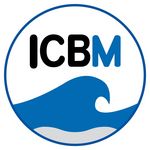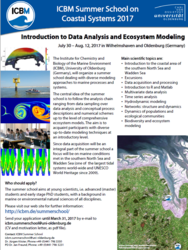News
Summer School completed (Aug 12, 2017)
News release (Aug 2, 2017, Univ. Oldenburg)
Latest update of programme: Aug 1, 2017
Decisions are made and applicants have been informed. Comfirmation from invited persons requested until April 30,2017. (Apr 21, 2017)
Applications are currently under review. (April 3, 2017)
Homepge is online - applications are welcome (Jan 15, 2017).
Important Dates
Deadline for application:
March 31, 2017
Invitations will be sent by mid of April 2017
Deadline for confirmation: April 30,2017
Start of summer school:
July 30, 2017
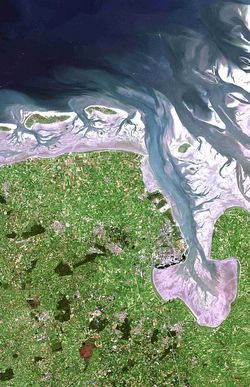
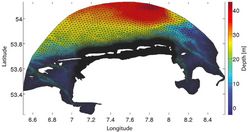
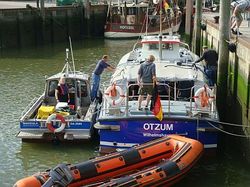
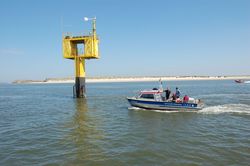
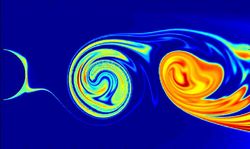
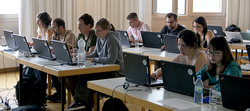
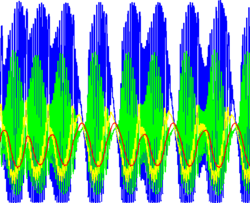
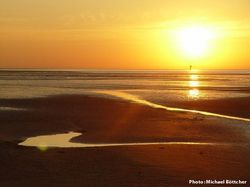
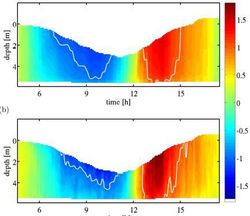
ICBM Summer School 2017

ICBM Summer School 2017
Introduction to Data Analysis and Ecosystem Modeling
July 30 to August 12, 2017
Summer School Completed
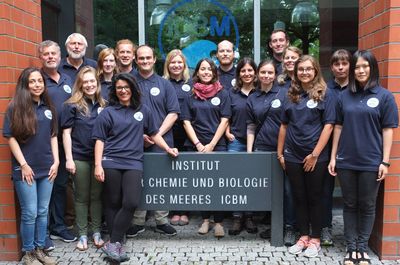
Announcement
From July 30 to August 12, 2017 the Institute for Chemistry and Biology of the Marine Environment (ICBM, University of Oldenburg) will organize a summer school entitled “Introduction to Data Analysis and Ecosystem Modeling”. The summer school will be held at ICBM facilities in Wilhelmshaven and Oldenburg, Germany. The focus is on mathematical and numerical methods used in marine and environmental sciences (but not engineernig sciences). The aim is to acquaint participants with diverse up-to-date modeling techniques at an introductory level. The summer school is addressed to early career scientists, i.e. advanced (master) students and early stage PhD students, with a background in marine or environmental natural sciences of all disciplines.
Since data acquisition will be an integral part of the summer school a focus will be on marine conditions met in the southern North Sea and Wadden Sea, one of the largest tidal systems world-wide and UNESCO World Heritage since 2009.
Background
Modern research questions of marine science involve diverse academic disciplines, for instance, marine sensor development, chemistry, hydrology, biology, etc. In any field, the path from a scientific hypothesis to a firm result is paralleled by a chain starting with data series and leading across data processing, statistical analysis and inference and modeling towards an answer that may be a statistically significant statement (statistical inference), an improved conceptual understanding (process-oriented models) or a novel hypothesis (data mining) to be tested in future laboratory experiments or field campaigns.
Common to all quantitative analysis is the involvement of mathematical concepts (in theory and practice) and computer-based tools (data analysis and programming software). Skills in data analysis and experience with modeling approaches are gaining more and more importance also for researchers in disciplines that are traditionally further way from mathematical theory building. While we expect a firm background of very basic math and some experience in any programming environment (e.g. Matlab or R), this summer school is intended for marine scientists from all scientific disciplines.
Based on the experiences with earlier summer schools it can be expected that participants of the summer school will benefit from the multidisciplinary approach of the ICBM and its scientists. The scientific programme comprises excursions, data acquisition with research boats, lectures and practical exercises (labs) concerning a large variety of modeling approaches used in marine and coastal research.
Being acquainted with diverse methods of data analysis and modeling approaches to the marine ecosystem dynamics participants will also gain a better understanding of the biological, chemical, and physical processes underlying and sustaining an ecosystem. This is of fundamental importance to predict the development of a coastal ecosystem when affected by climate change or human activities (like land use, tourism, diking, and renaturation) and is the base for sustainable ecosystem management and protection.
Topics
The summer school will introduce participants into various modeling approaches to marine ecosystem dynamics. Relevant processes in the marine environment range from oceanography (hydrodynamic transport, bentho-pelagic coupling, eddie dynamics), over biogeochemistry (nutrient cycling, stoichiometry) to biological populations (regular or harmful algal blooms, biological growth inside eddies) and eventually reach the level of ecological communities (marine food web, biodiversity and its relation to ecosystem functions and services). This wide range of processes is paralleled by a rich arsenal of mathematical modeling methods (discrete vs. continuous in time/space, deterministic vs. stochastic, process-oriented vs. statistical, conceptual vs. comprehensive). Apparently the full scope of modeling dimensions cannot be explored in a two weeks summer school. Therefore, we will guide students along a carefully selected modeling pathway leading from measurement data, across time series analysis towards an integration of oceanographic and biological aspects and the analysis of ecological communities. Models of different complexity will be addressed ranging from conceptual models employed in the field of population dynamics to comprehensive models (ERSEM, EcoTIM) of the complex marine ecosystem. While models of the first mentioned type are suitable to illustrate fundamental phenomena (e.g. predator-prey cycles or the sporadic excitation of harmful algal blooms), comprehensive models with a modular structure allow students with completely different prior experience to work at their own pace. Finally, we introduce participants to the description and modeling of ecological communities which is in close connection with biodiversity research, one of today's 'hot topics' in ecology.
The main topics of the summer school are:
- Introduction to the coastal area of the southern North Sea and Wadden Sea
- Excursions by research boats, car, and on foot (Jade, Spiekeroog, tidal flats, ecology, landscape and settling history)
- Data acquisition and processing
- Multivariate data analysis (with introduction to R)
- Time series analysis (with introduction to Matlab)
- Hydrodynamical modeling
- Networks: structure and dynamics
- Dynamics of populations and ecological communities
- Biodiversity and ecosystem modeling



![[Translate to English:]](/f/5/_processed_/3/2/csm_ICBM-Logo-transparent-_91fe1c6774.png)
